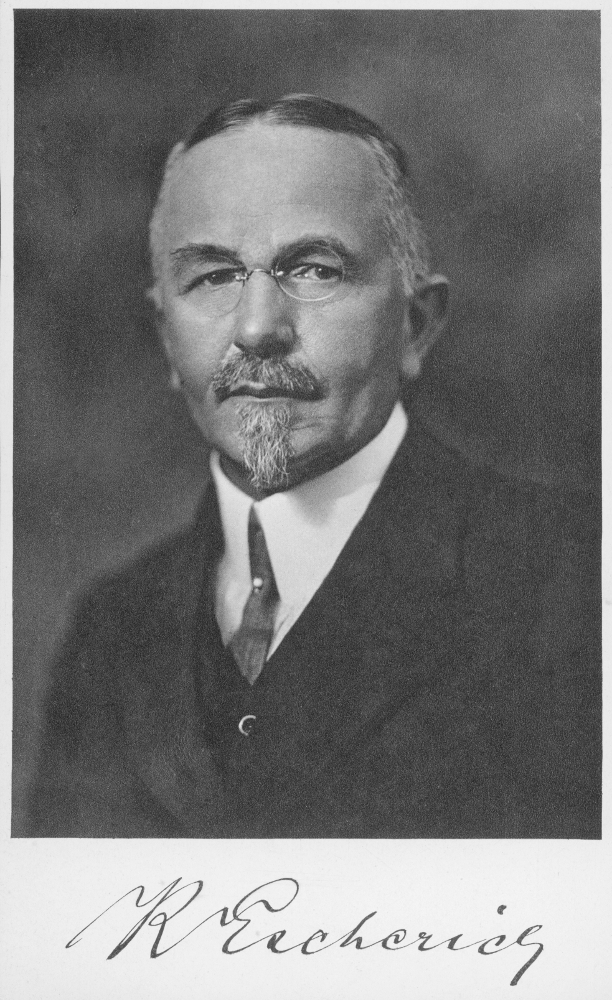Der Sohn eines Fabrikbesitzers und jüngere Bruder von Georg Escherich studierte zunächst Medizin in München und Würzburg und nach seiner Promotion zum Dr. med. auch Zoologie in Heidelberg und Leipzig, wo er zum Dr. phil. promoviert wurde. Die Stationen seiner weiteren akademischen Laufbahn waren die TH Karlsruhe, die Universität Straßburg und die Forstliche Hochschule in Tharandt. 1914 wurde er auf den Lehrstuhl für angewandte Zoologie an der Universität München berufen.
Schon früh engagierte er sich für die Hitler-Bewegung, trat 1921 in die NSDAP ein und nahm 1923 am Hitler-Putsch teil. Der im Februar 1925 nach ihrem Verbot reorganisierten NSDAP trat er jedoch nicht bei. Am 15.10.1933 wurde er vom Bayerischen Kultusministerium zum Rektor der Universität München ernannt und war damit der erste nicht mehr von den Fakultäten gewählte Rektor. Dennoch wurde ihm von beiden Seiten Vertrauen entgegengebracht. Für die staatliche Seite war er „ein zutiefst national eingestellter Mann und alter Verehrer Hitlers“ (Böhm, S. 532), für die Universität und ihre Gliederungen galt er als Integrationsfigur, Vermittler und Bewahrer traditioneller Eigenbereiche.
Escherich war seit 1935 ordentliches Mitglied der Bayerischen Akademie der Wissenschaften. Er wurde 1936 emeritiert, fungierte allerdings ab 1940 wieder als Lehrstuhlvertreter. 1946 amtsenthoben, wurde er 1948 wieder eingesetzt und gleichzeitig emeritiert. Seit 1986 und bis heute verleiht die Deutsche Gesellschaft für allgemeine und angewandte Entomologie für herausragende wissenschaftliche Leistungen die nach ihm benannte Karl-Escherich-Medaille.


